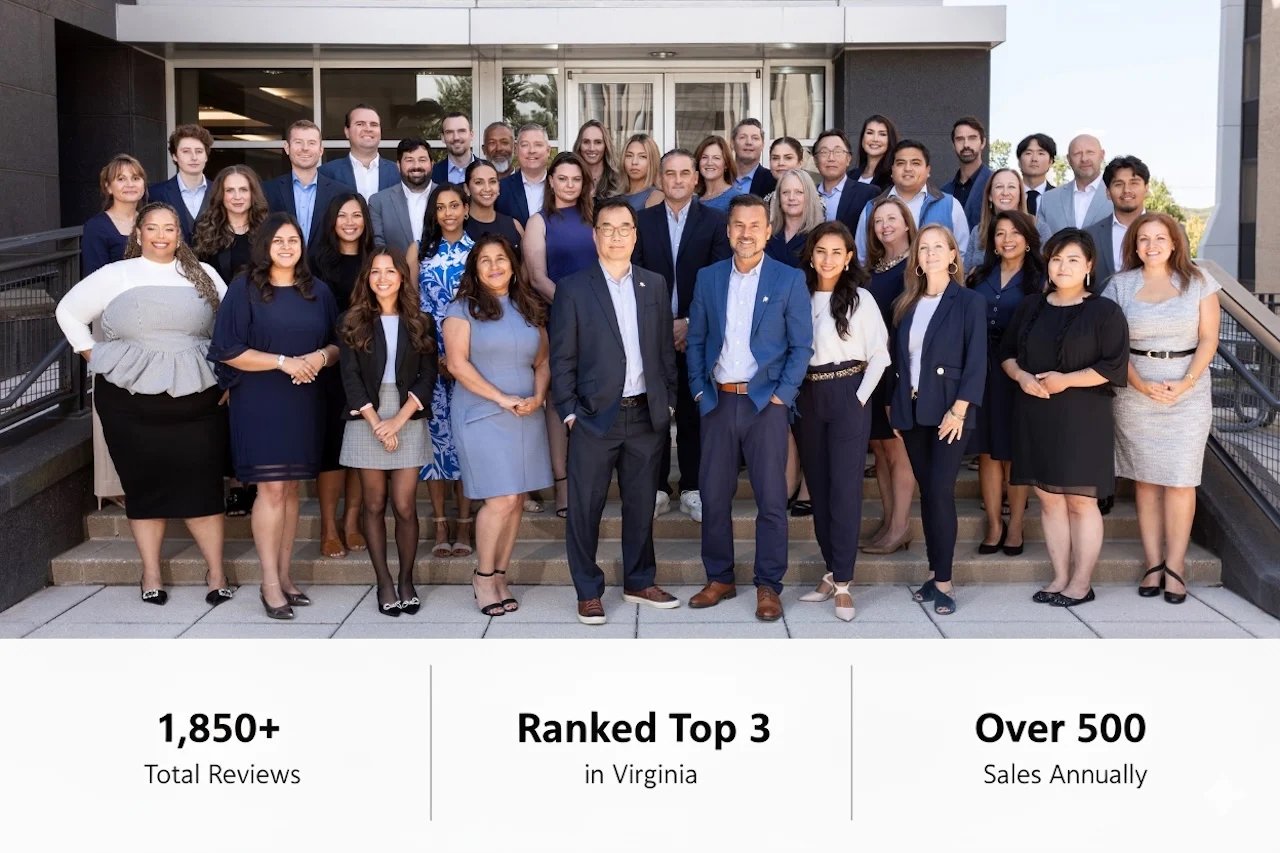
Have you ever considered a career where your success is truly unlimited? A career that offers the freedom to build your own schedule, the excitement of helping people achieve life-changing goals, and the potential for an income that matches your ambition?
If you’re a college graduate looking for a dynamic field, a seasoned professional seeking a meaningful career change, or a part-time worker ready to take the reins of your financial future, you’ve likely looked at real estate. It’s an exciting, challenging, and incredibly rewarding industry—but the first step, understanding how to become a realtor, can feel like a maze.
We get it. Our team, Debbie Dogrul Associates (Team DDA), is one of the best real estate teams in Northern Virginia, and every single one of our agents started right where you are: at the very beginning. We built our success on a foundation of mentorship, cutting-edge training, and a culture that prioritizes agent growth over everything else. We don't just sell homes; we build careers. We want to empower you with the clear, no-nonsense roadmap you need to launch your own thriving real estate career in the Commonwealth.
This is your official, step-by-step guide to not just getting your Virginia real estate license, but building a business you’re proud of.
1. The Real Estate License Foundation: Eligibility and Pre-Licensing Education
Every thriving career in Virginia real estate begins with a solid foundation. Before you can even sit for the exam, you need to meet the basic eligibility requirements set by the Virginia Real Estate Board (VREB).
Basic Eligibility Requirements
- Age: You must be at least 18 years old.
- Education: You must possess a high school diploma or its equivalent (GED).
- Character: You must not have been found guilty of fair housing violations or any felony in any state.
Complete the Required 60-Hour Course
Once you meet the prerequisites, your next crucial step is completing the mandatory 60-hour pre-licensing course, officially known as "Principles of Real Estate."
- This comprehensive course must be taken through a VREB-approved school.
- It covers foundational subjects like property law, contracts, finance, and ethics—all essential knowledge for any aspiring agent.
- You’ll need to pass the course’s proctored final exam to receive your certificate of completion, which qualifies you to apply for the state licensing exam.
2. Navigating the Virginia Real Estate Exam and Background Check
The next two steps are all about proving your competency and character. This is where your commitment to learning how to become a realtor truly pays off.
Pass the State Licensing Exam
After completing your 60-hour course, you will register with the state’s testing vendor, PSI, to take the Virginia Real Estate Salesperson Examination.
The exam consists of two parts:
- National Portion: Covers general real estate principles and practices.
- State Portion: Focuses specifically on Virginia’s laws, regulations, and forms.
Insider Tip: Don’t skimp on exam prep! Passing the exam on your first try is a massive time-saver. While you can retake the exam for a fee, a dedicated study plan with practice tests and targeted review will dramatically increase your chances of success. Our agents often tell us the state-specific laws are the trickiest part!
Fingerprinting and Background Check
Virginia mandates a fingerprint-based background check for all applicants.
- You must get electronically fingerprinted at an approved PSI site in Virginia.
- Crucial Deadline: Your full license application must be received by the VREB within 45 calendar days of your fingerprinting date. Fail to meet this deadline, and you’ll have to repeat the fingerprinting process and pay the fee again. Stay organized and move quickly!
3. The Costs and Time Investment: Treating It Like a Business
Real estate is a business, and like any business, there are startup costs. Understanding these expenses is a key part of the roadmap for how to become a realtor.
Realistic Initial Costs Estimate
The total cost to get your license and start your business typically ranges from $800 to $1,500, depending on your choice of school and study materials.
Item | Estimated Cost Range | Notes |
Pre-Licensing Course | $130 – $400 | Online vs. in-person options. |
State Exam Fee | $60 per attempt | Paid directly to PSI. |
Fingerprinting/Background Check | $50 – $60 | Paid to the approved vendor. |
Initial License Application Fee | $170 – $210 | Paid to the VREB. |
Post-License Education (30 hours) | $150 – $400 | Required within your first year. |
Errors & Omissions (E&O) Insurance | $300 – $500 (Annual) | Mandatory coverage, often purchased through your broker. |
Realtor® Association Dues | $500 – $1,000 (Annual) | Includes local, state, and national fees; grants access to the MLS. |
The Time Commitment
Getting the license itself can take 2 to 4 months for most aspiring agents, depending on how quickly you complete the 60-hour course (which takes about 2.5 weeks full-time) and how long you study for the exam.
Remember: Getting the license is the entry ticket; the real work starts the day you affiliate with a broker.
4. Find a Sponsoring Broker: The Most Important Career Decision
The single most critical decision you will make after passing the exam is choosing your sponsoring broker. In Virginia, you must be affiliated with a licensed broker to practice real estate. This person or brokerage will hold your license and, more importantly, guide your first steps.
Why Joining a Team is the Ultimate Cheat Code
When you're asking yourself how to become a successful realtor, the answer isn't just a license; it's mentorship. We're not going to sugarcoat it: the first year as a solo agent is brutal. You’re trying to generate leads, master contracts, market yourself, and learn the local market all at once. This is why joining a top-performing, mentor-driven team like Debbie Dogrul Associates is the fast track to success.
- Lead Generation: A successful team provides you with qualified leads immediately, so you can focus on mastering client communication instead of cold-calling.
- Training & Systems: You get instant access to proven scripts, marketing materials, and transaction management systems that took the top agents years to develop.
- The Safety Net: When you write your first contract, a senior agent or mentor is right there to double-check your work, ensuring you protect your clients and yourself. This hands-on guidance is invaluable.
- Realistic Real-Life Insight: Your daily life will be 80% admin, marketing, and prospecting, and 20% showings and negotiating (at first). A good team gives you a playbook for that 80%. Example: Instead of spending a full day designing a flyer, you're on a team call learning the newest contract clause change or shadowing an experienced agent at a listing appointment. You learn what’s urgent and what’s important.
The Team DDA Difference: Mentorship for Life
At DDA, we don't hire agents to compete with them; we hire them to train our future leaders. We offer a structured mentorship program where new agents are paired with top producers for a hands-on learning experience that goes far beyond the 60-hour course.
We provide:
- Daily Training: Dedicated sessions on lead conversion, contract negotiation, and market analysis.
- Unrivaled Culture: A supportive, non-competitive environment where sharing knowledge is the norm.
- Technology Stack: Immediate access to high-end CRM, marketing tools, and transaction software.
Statistic to Consider: Nationally, a large percentage of new real estate agents fail to renew their license after their first year. Joining a team with a structured training program drastically increases an agent's chances of sustained success.
5. Launch and Sustain: Your First Year Action Plan
You’ve got your license, you’ve joined a broker/team, now what? The first year is about building habits that will last your entire career.
Actionable Steps for New Agents
- Complete Post-License Education (PLE): In Virginia, you must complete 30 hours of PLE within one year of receiving your license. Do not let this deadline sneak up on you!
- Focus on Your Sphere of Influence (SOI): Your first clients will almost certainly come from the people who already know and trust you. Systematically contact everyone you know to share the news that you are a licensed realtor.
- Time Block Prospecting: Treat lead generation like a non-negotiable appointment. Every day, block 2-3 hours for making calls, sending emails, and following up on leads. Consistency is the secret to a successful real estate career.
- Know Your Market: Become an expert in one neighborhood or zip code first. Learn every comparable sale, every new listing, and every development plan. You are the local economist for your clients.
🚀 Take the Next Step Toward Your Real Estate Career
A career in real estate is a marathon, not a sprint, but the rewards—the freedom, the financial potential, and the genuine satisfaction of helping someone buy their first home—are worth every ounce of effort. The question is no longer how to become a Realtor, but when you are going to start.
The world of real estate needs dedicated, ethical, and ambitious professionals like you. If you’re ready to turn your ambition into action and want to launch your real estate career with the best guidance in Northern Virginia, let’s talk.
Connect with us today to discuss your career goals, learn more about Team DDA, and map out your first 90 days of real estate success.





